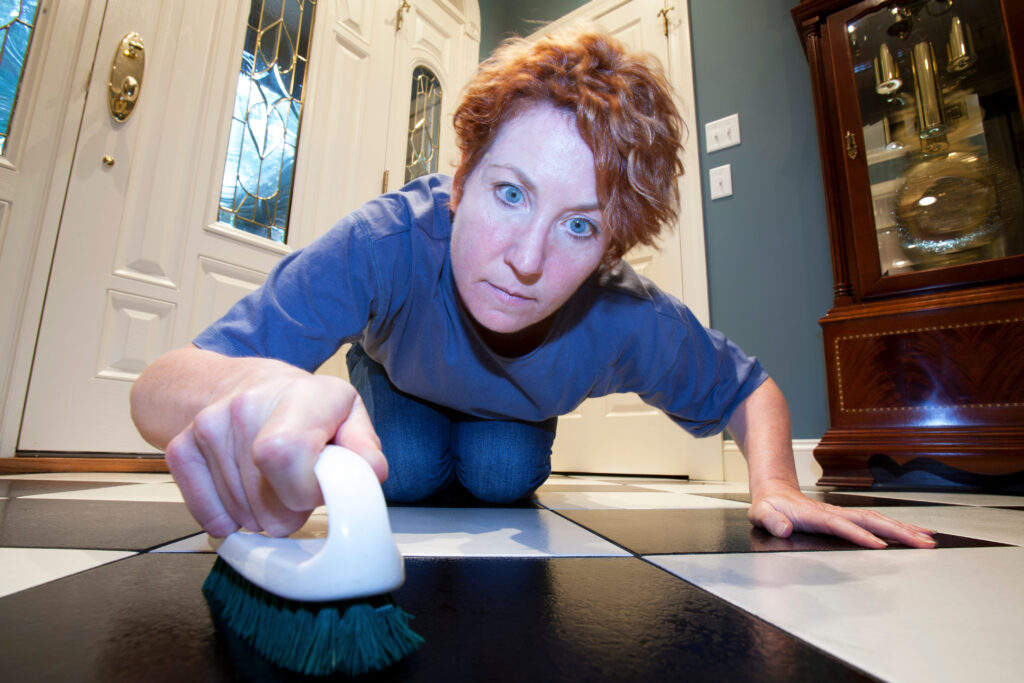Deeper Insight into Obsessive Compulsive Disorder
Obsessive-compulsive disorder (OCD) is a common, chronic condition. It involves unwanted thoughts, fears (obsessions), and repetitive behaviors (compulsions).
The urge to follow these intrusive thoughts can take over a person’s life. This disrupts work, school, and relationships. Even though people recognize their behaviors as extreme, they often can’t stop.
People may spend hours caught up in these relentless thoughts or rituals. There’s no real pleasure in doing them—only brief relief from anxiety.
The exact cause of OCD remains unknown, but some factors seem to increase the risk: genetics, differences in specific brain regions and networks, and possibly childhood trauma, though more research is needed.
It’s important to understand that OCD isn’t just a personality quirk or a preference for cleanliness. It’s a medically diagnosed disorder. Not every habit or ritual is a compulsion—everyone double-checks things occasionally.
Obsessive Compulsive Disorder Stats
- OCD affects about 2.5 million adults in the U.S., roughly 1.2% of the population.
- Around 1 in 100 adults has OCD. Women are three times more likely than men to be diagnosed.
- Over half of those with OCD report severe symptoms. The average age when symptoms start is 19, and 25% of cases begin by age 14.
- Nine out of ten people with OCD also have another mental health condition, often an anxiety disorder.
- Only 15% experience mild symptoms, making OCD one of the most disabling mental health issues.
- About 1 in 200 kids and teens have OCD, similar to the number diagnosed with diabetes.

Subtypes of OCD
OCD comes in different forms, each with unique signs you might recognize.
- Contamination OCD involves fears of germs and cleaning the compulsions, affecting nearly half of people with OCD.
- Checking OCD revolves around compulsive checking to ease fears of harm.
- Religious OCD makes sufferers obsess over performing religious activities perfectly, often reciting prayers carefully but still worrying.
- Rumination OCD features disturbing thoughts without visible compulsions, playing out entirely in the mind.
- Relationship OCD causes constant worries about romantic relationships.
- Perinatal, Postpartum, or Maternal OCD centers on fears that something bad will happen to a child.
- Magical Thinking OCD involves believing certain actions can prevent disasters.
- Sensorimotor or Somatic OCD makes individuals hyper-aware of bodily functions, unable to shift focus elsewhere.
- False Memory OCD intrudes with vivid, false memories of crimes, like murder, that feel real.
- Symmetry and Orderingordering OCD drives a need to arrange objects perfectly to feel at ease.
Symptoms and Signs of OCD
OCD symptoms can shift, improve, or worsen over time. Some people turn to drugs or alcohol to dull triggers, but relief is usually short-lived.
People with OCD may experience obsessions, compulsions, or both. Obsessions are repetitive, anxiety-provoking thoughts or urges. Compulsions are behaviors aimed at easing those obsessions.
Common obsessions include:
- Fears of germs
- Losing control
- Aggressive thoughts
- Unwanted taboo ideas involving sex or religion
- Strong need for symmetry or order
Common compulsions involve:
- Washing
- Arranging items precisely
- Repeated checking
- Counting
- Following strict routines
- Seeking reassurance
Dangers and Physical Health Problems
OCD can seriously harm a person’s well-being and daily life. It strains relationships and disrupts normal functioning.
Sometimes, compulsive behaviors cause physical problems, like skin irritation from excessive hand washing or injuries from repeated actions. People might even put themselves in risky situations to complete rituals.
Self-medicating OCD symptoms with drugs or alcohol can lead to addiction, increasing risks like overdose.
Problems linked to OCD include:
- Spending excessive time on rituals
- Health issues such as contact dermatitis
- Difficulty at work, school, or in social settings
- Troubled relationships
- Poor quality of life and neglect of self-care
- Suicidal thoughts and behaviors

Why OCD Treatment is Important
Getting started with a treatment plan for OCD is crucial. Medication and therapy can significantly improve quality of life. Being free from the disorder’s grip feels like real freedom.
Treatment often combines psychotherapy and medication. Sometimes, inpatient or outpatient programs are needed, especially when other conditions are present.
Many with OCD also struggle with anxiety, depression, body image issues, or substance abuse. These need to be considered when planning treatment.
While there’s no cure for OCD yet, many people benefit from current treatments. They can manage symptoms, engage in daily activities, and live active lives.
Cognitive Behavioral Therapy (CBT)
CBT is a cornerstone of OCD treatment. It helps individuals identify and challenge unhealthy thought patterns and develop healthier coping strategies. Within CBT, a specific technique called Exposure and Response Prevention (ERP) is especially effective for OCD, as it gradually exposes individuals to feared situations while helping them resist the urge to perform compulsions.
Dialectical Behavior Therapy (DBT)
DBT is another therapeutic approach that can benefit individuals with OCD, especially those who also experience mood disorders or borderline personality disorder. DBT focuses on emotional regulation, distress tolerance, and mindfulness, helping individuals manage intense emotions and reduce compulsive behaviors.
Rapid Resolution Therapy
Rapid Resolution Therapy (RRT) is a brief, innovative approach that helps people quickly resolve emotional distress and trauma without needing to relive painful memories. Using guided imagery, hypnosis, and specific language techniques, RRT targets the subconscious to neutralize the emotional impact of past events. This therapy is beneficial for anxiety, PTSD, and self-defeating behaviors, often producing lasting change in just a few sessions.
Relational Trauma Therapy
Relational trauma therapy focuses on healing the effects of hurtful or abusive relationships, especially those from childhood or close partnerships. The treatment helps individuals process difficult emotions, rebuild trust, and learn healthier ways to relate to themselves and others. By working through these issues in a supportive environment, guests can improve self-esteem and develop stronger, more positive relationship patterns.
Trauma Therapy
Trauma therapy is designed to help people recover from the psychological effects of traumatic experiences, such as abuse, accidents, or violence. It uses evidence-based methods like cognitive behavioral therapy (CBT) and EMDR to process difficult memories, reduce symptoms like anxiety or flashbacks, and restore a sense of safety and control. The goal is to support emotional healing and improve overall well-being.
Psychodrama Therapy
Psychodrama therapy uses role-play and group action to help individuals explore and resolve personal issues. Participants act out real-life situations in a supportive group setting, gaining new perspectives and emotional release. This experiential approach is effective for processing trauma, building self-awareness, and practicing healthier behaviors within relationships.

Holistic Approach to Mental Health and Well-Being
A holistic approach to OCD treatment addresses the whole person, not just symptoms. This may include mindfulness, breathwork, equine therapy, and other wellness practices to support mental and physical health.
Levels of Care for Treatment
We provide various levels of care to meet each individual’s needs:
- Inpatient rehab requires individuals to stay at a treatment facility full-time, providing round-the-clock support and structured therapy in a safe, supervised environment. This option is ideal for those with severe addiction or co-occurring mental health conditions who need intensive, immersive care.
- Partial Hospitalization Program (PHP) is a structured, intensive program providing therapy and support during the day while allowing guests to return home at night.
- Intensive Outpatient Program (IOP) offers flexible, comprehensive care for those who need ongoing support but do not require full-time treatment.
- Outpatient rehab lets individuals live at home while attending scheduled therapy and treatment sessions, making it ideal for those who need flexibility to maintain work or family commitments. It’s best suited for people with mild to moderate substance use issues or as a step-down from more intensive care.
- Dual diagnosis programs are for individuals with co-occurring disorders, such as substance abuse, bipolar disorder, or narcissistic personality disorder, integrated treatment addresses both conditions simultaneously.
Take Life in a New Direction
If you or a loved one is struggling with the challenges of OCD, don’t wait to seek support. At Thoroughbred Wellness and Recovery, compassionate professionals are ready to guide you toward lasting relief and a more fulfilling life.
Reach out today at 770-564-4856 to learn more about our comprehensive OCD treatment center in Atlanta, Georgia, and discover how evidence-based care and a personalized approach can help you reclaim your well-being.
Take the first step-contact Thoroughbred Wellness and Recovery and begin your journey to hope, healing, and renewed peace of mind.










